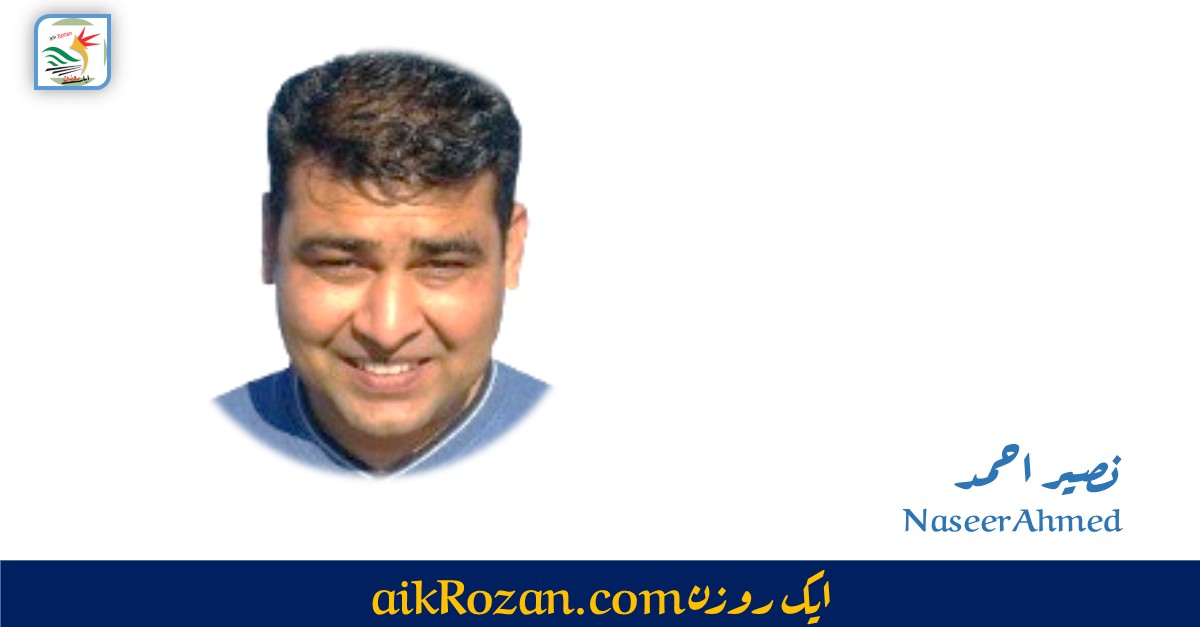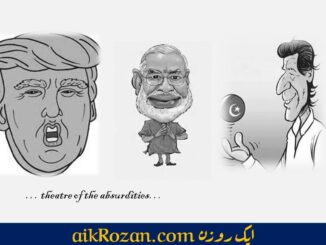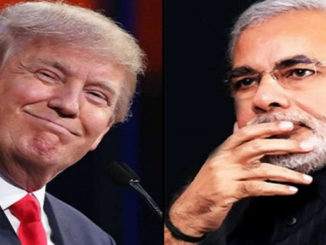
Why Modi again
by, Naseer Ahmed
Modi just won by manipulating sentiments and willingness of public to be sentimentally manipulated.He used corporate dreams of social mobility and illusions of fascist revival of glorious past to win this election.Both positions are just sentimental drama because corporate dreams are just about rise of inequality and glorious past is a big lie which people love. A lie is a lie no matter how much somebody loves it.
India is still a country where ‘ more than 70 million Indian citizens live on less than $1.90 a day’.
Basically he gives no real welfare, no economic growth and lots of hatred to minorities which could get out of control anytime. It is a strange formula that works for likes of Modi.
His victory is basically a failure of what is good about humanity like rationality, imagination,understanding,evidence based decision making, commitment to democracy and compassion.
It is sad that an overwhelming majority of Indians chose to be neither self interest smart nor good citizens.And a glorious past that trains people to hate means that you are no longer a good human being.
Then, Chinese model is a bit better than this useless democracy where you are deprived of your human rights but as a group you become a super power.You can’t blame Chinese giving up democracy because they never had a chance.
Indians are giving up a better side of life for nothing.Then again, nothingness is what Indians love most.The whole social system is based upon Zero and Indians are quite determined to keep things Zero way.
It often happens after great economic failures and great wars that people like to give up their responsibilities around decision making , self interest and citizenship.
No great war in India and no great economic depression in India currently? Why then, a majority is behaving selfish, stupid and fascist ways?
Giving up rational faculties, citizenship and humanity is about fear, greed ,confusion and uncertainty.They could be manufactured in a relatively better economic and political situation.That is what corporations and demagogues are doing quite successfully in India.
Well this constant propaganda about possibilities of losses around money, identity,life, dignity frightens people and frightened people tend to worship the leaders who reassure them.
It becomes tough for people to exercise their rational and empirical faculties around manufactured fears and false reassurances.’Hurt Abdullah if you remain the purest of the purest Lakashman’ Kind of stuff
.It has nothing do to facts around economy and politics and Hurting Abdullah for his orientations or preferences does not purify Lakshman. In fact it makes him a worse person but Lakshman wants to believe big lies about purity.
And the truth is a difficult thing.You have to pursue it quite diligently to have it.When you don’t want it you don’t get it.However, it is always there and keeps shattering your impossible dreams.
This time truth has real difficult time because technology is armed with the experience of totalitarian states and corporations about creating lies and burying truth.
And democracy without truth is bound to look like a big corporation or a state that trains its people to hate life itself or worse.
And that is happening in India and many other places.This alliance of hatred and business is a consensus these days. At some point it is going to break for worse or better but this overwhelming disrespect of truth from the vast majorities is not a good sign.
In the end, people would have to realize that corporate model and rising fascism hate truth to the bits and to keep it relevant, they will have to use the faculties and possibilities that get them closer to truth .
This group Chamcha (slave to group) won’t do.People need to regain their individuality and their responsibilities as citizens , thinkers and decision makers.Yes individuals need groups to protect their interests but the groups that respect diversity,creativity, common sense, possibilities, dignity,individual ,compassion and above all facts have a better record of performance around politics, economy, society, innovation and science.



